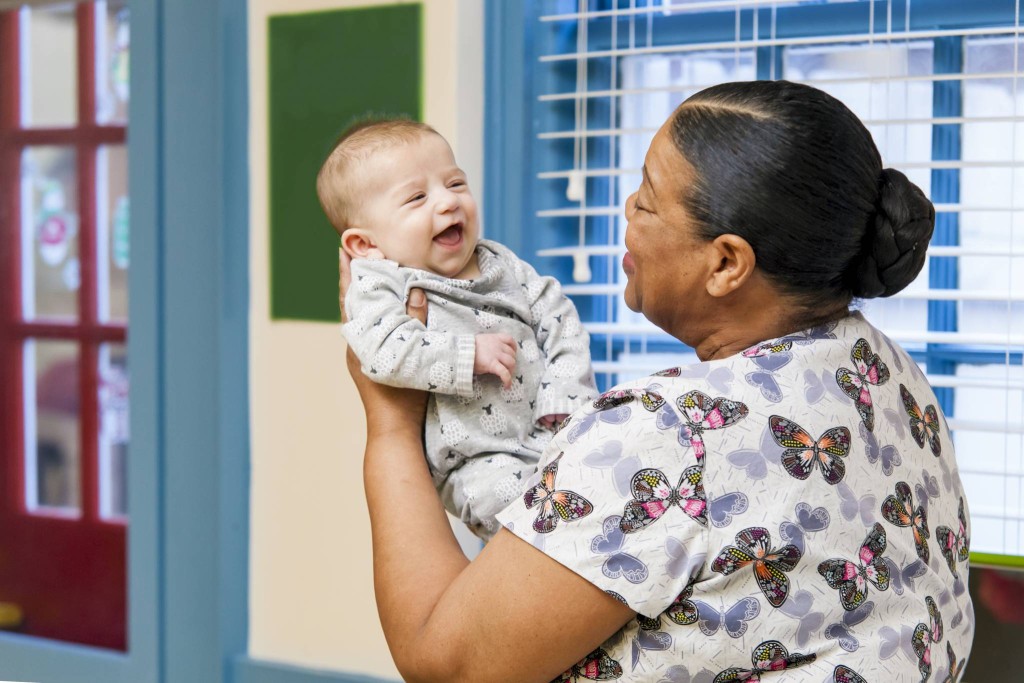Georgia State University Research Center Will House Georgia Association for Infant Mental Health (GA-AIMH)

By: GEEARS for Saporta Report
Earlier this fall, the American Academy of Pediatrics (AAP), the American Academy of Child and Adolescent Psychiatry (AACAP), and the Children’s Hospital Association declared a national emergency in children’s mental health. As evidence, they cited a CDC report, which found that between March and October 2020, emergency department visits for mental health emergencies rose by 24% for children ages 5-11 years.
Children as young as five are visiting emergency rooms for mental health crises.
While this particular report is new, an increasing amount of research over the past 30 years has pointed to the importance of focusing on the social-emotional development of very young children—starting at birth—to build children’s resilience and prevent mental health emergencies.
Very young children’s social-emotional development also referred to as Infant and Early Childhood Mental Health (IECMH), is defined as the developing capacity of a child from birth to five years old to form close and secure relationships, experience, manage and express emotions, and explore their environment and learn—all in the context of family, community, and culture. Young children’s social-emotional development is critical to lifelong mental health and future academic success.
IECMH as a field spans the spectrum of mental health services, from promotion to prevention to treatment, and encompasses a wide range of professionals who work with young children and their families, including early childhood educators, home visitors, pediatricians, and mental health clinicians.
In 2019, a Georgia House of Representatives study committee chaired by Representative Katie Dempsey (R-Rome) produced a series of recommendations to improve Georgia’s systems that address the social-emotional needs of young children, including establishing an agreed upon set of core competencies for early childhood professionals who work on social-emotional development and mental health.
As a result of these recommendations and the work of state agencies and community partners led by the Georgia Early Education Alliance for Ready Students (GEEARS), the Georgia Association for Infant Mental Health (GA-AIMH) was established to raise awareness of young children’s social and emotional needs, develop and support that state’s IECMH workforce, and foster cross-system collaboration.
The Mark Chaffin Center for Healthy Development (MCCHD), a Georgia State University research center housed in the School of Public Health, has been chosen as the future home for GA-AIMH. The MCCHD is focused on preventing and addressing child maltreatment, building social-emotional competencies, and promoting meaningful inclusion and quality of life for individuals. Within the Center, GA-AIMH will support a range of early childhood professionals who address the social, emotional, and developmental needs of young children and their families.
“I am delighted that the MCCHD has been selected as the umbrella organization to lead GA-AIMH forward as a vibrant and highly collaborative catalyst for advancing infant and early childhood mental health throughout the state of Georgia,” said Kathleen Baggett, interim director of the MCCHD and an associate professor of health promotion and behavior in the School of Public Health.
Many early childhood educators and clinicians have indicated the need for additional professional development that specifically addresses the mental health needs of younger children. A central component of GA-AIMH’s work will be the Endorsement for Culturally Sensitive, Relationship-Focused Practice Promoting Infant & Early Childhood Mental Health, which was created by the Alliance for the Advancement of Infant Mental Health. Endorsement is an overlay that complements one’s professional license and provides recognition of specialized knowledge and expertise among professionals working with or on behalf of young children and their families. Georgia joins thirty-two other states already offering the Endorsement.
As Georgia moves into the third year of the COVID-19 pandemic, our recovery efforts must address the ongoing children’s mental health crisis. GA-AIMH and the Endorsement will help expand awareness of IEMCH and access to mental health services for very young children, giving families and professionals the tools to prevent future mental health crises and help the youngest Georgians thrive.
Funding and support for GA-AIMH has been provided by the Georgia Department of Early Care and Learning, the Community Foundation for Greater Atlanta, and the Center for Leadership in Disability at Georgia State University. GEEARS serves as the host organization and fiscal agent for GA-AIMH.